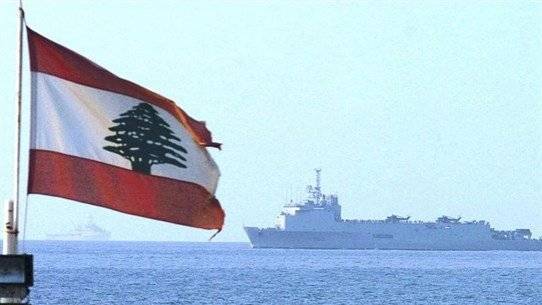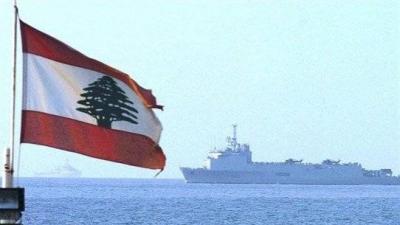Although the American envoy Amos Hochstein has not yet shared his insights following his meetings with the three presidents regarding maritime border demarcations with Israel, he chose to comment from the "Al-Hurra" station. The best takeaway from his statements, laden with irony and sarcasm, is that he heard from them a unified Lebanese stance on demarcation. It seems that all he aimed to achieve — this being an unnecessary pursuit — was the existence of a unified Lebanese position on an issue that is supposed not to be a subject of political, sectarian, or factional disagreement among Lebanese officials, but rather linked to a fateful entitlement residing in the heart of the Lebanese exclusive economic zone. Likewise, Lebanese officials treated Hochstein's visit as if the unified official stance was the sole achievement and what mattered most.
In reality, this sarcasm will reflect on the ambassadors accredited to Lebanon when they report back to their governments about the results of the American envoy’s discussions, finding little reason to take seriously what they heard, namely that Lebanese officials finally agreed on a uniform position regarding a national wealth that is relied upon to revive the national economy.
In summary, Hochstein's visit to Beirut means he will carry the official Lebanese position to Israel to return again with a response. Until that time arrives, Lebanon has presented a proposal that slightly shifted line 23 to become "23 +", aiming to exempt the Qana field from being a disputed area between Lebanon and Israel. The expected response from Israel is either to agree to the updated line or revert the dispute to before the acceptance of line 23, which means resurrecting the claim for line 29.
Observers of Tuesday's discussions noted Lebanon's focus on the fact that the problem lies in the boundary of the fields, although a partial gain that might be useful for some time is the halting of the extraction of gas from the Karish field during the current indirect Lebanese-Israeli negotiations, which are under American sponsorship.
The observations recorded by these observers include the following points:
1. Whether the vessel halts operations for a week, two weeks, or even a month, extraction had begun before Hochstein sat at the negotiation table without Lebanon being certain that the Qana field, which it insists on holding fully, is rich with gas. It is well-known that the urgency in extraction is due to American insistence that intersects with European needs to start exporting Israeli gas before winter, compensating for the ramifications of the Ukraine war and the closure of Russian taps. It is also not hidden that the recent American mediation relies on the convergence of two interests: the first is American, aiming to secure gas for Europe as a substitute for Russia, and the second is Israeli, focused on selling its gas at high prices at a pivotal time when the old continent needs it.
Some Lebanese officials who met with Hochstein picked up hints regarding the approval of his administration for the vessel to reach its current site, retracting from line 29, adding that Lebanon must not miss this last opportunity. Attention was also drawn to his inquiries about the coordinates of the new "23 +" line proposed by Lebanon to take to Israel, which, as he mentioned to the Lebanese officials, seeks a solution to benefit from the Karish field.
2. The borders are only part of the demarcation problem. The complementary and more urgent component is the rights. While he stated he stands behind the Lebanese state in the negotiation process regarding demarcation, Hezbollah's Secretary-General Hassan Nasrallah pointed to the hidden side of the problem — at least from the Israelis' perspective — which is the rights that enable Lebanon, just as Israel, to extract oil and gas from the fields agreed to be demarcated between them. This became evident when he spoke about Block 4, where work was halted under the pretext of its empty interior of oil and gas, while it became clear that the company tasked with exploration was instructed to stop its work.
While Nasrallah established an equation of north and south, emphasizing that exploration and extraction should occur equivalently, the head of the Free Patriotic Movement, MP Gibran Bassil, proposed a similar equation but with essential differences in its conclusions. In a statement that angered both the Americans and Israelis, Bassil asserted that gas from Qana is equal to gas from Karish, indicating that there would be no gas from Karish unless there was gas from Qana, distinguishing between the surface and subsurface of the fields. This equation also did not please Hochstein, who remarked that describing it as slogans necessitated abandoning it.
What Bassil discussed regarding the original line 23, suggesting that a company should be tasked with exploration and extraction in the Qana field, with Lebanon subsequently paying Israel's share without Israel being involved in extraction, argued that the urgent need lies in extraction, production, and benefiting from revenues. Hezbollah rejected this proposal, considering it covert normalization even through a third party. They opposed designating the Qana field as a disputed area between Lebanon and Israel for fear that institutionalizing their shares in it would pave the way for normalization. This reaffirmed Hezbollah’s position when it objected to President Michel Aoun's inclusion of civilians in the military negotiating delegation for the Naqoura talks, asserting that even one civilian presence would signal unacceptable covert normalization. Although Hezbollah did not see sitting at the negotiating table in Naqoura under American and UN sponsorship as a form of undeclared normalization.
3. To the extent that the dispute is real and legitimate on the surface of the fields, with both Lebanon and Israel insisting on them, the essence lies beneath. Without Hochstein returning to Beirut with dual American-Israeli guarantees regarding the removal of obstacles preventing Lebanon from extracting oil and gas from its fields and allowing foreign companies to operate within its maritime boundaries, the unified Lebanese vision remains nothing but ink on paper entering a real impasse. Thus, returning to the table for indirect negotiations in Naqoura appears indefinitely postponed, unless a surprise forces everyone into an agreement compelling painful concessions.




